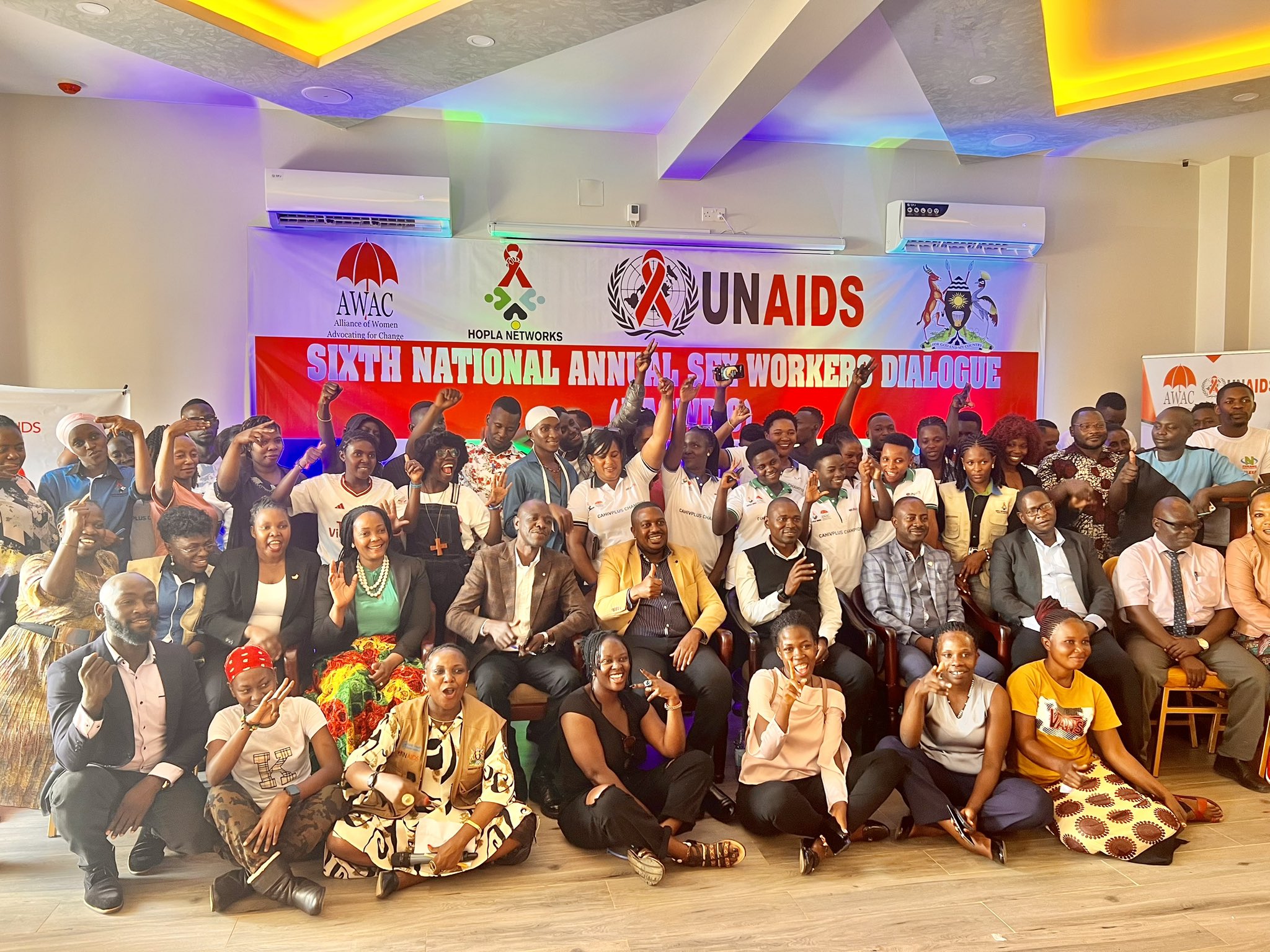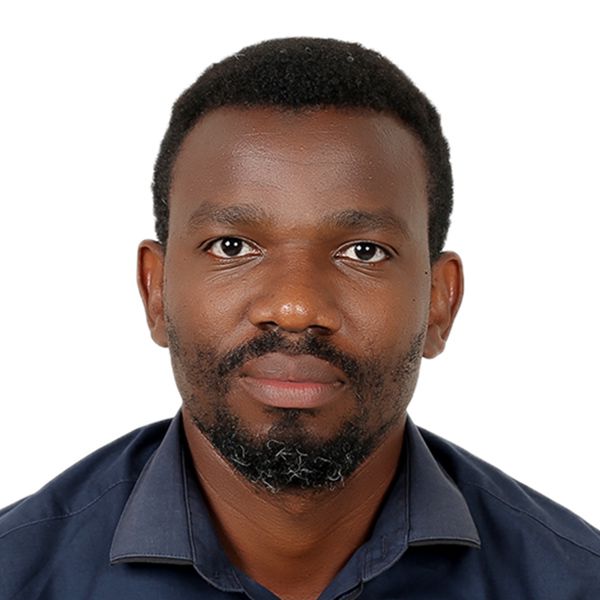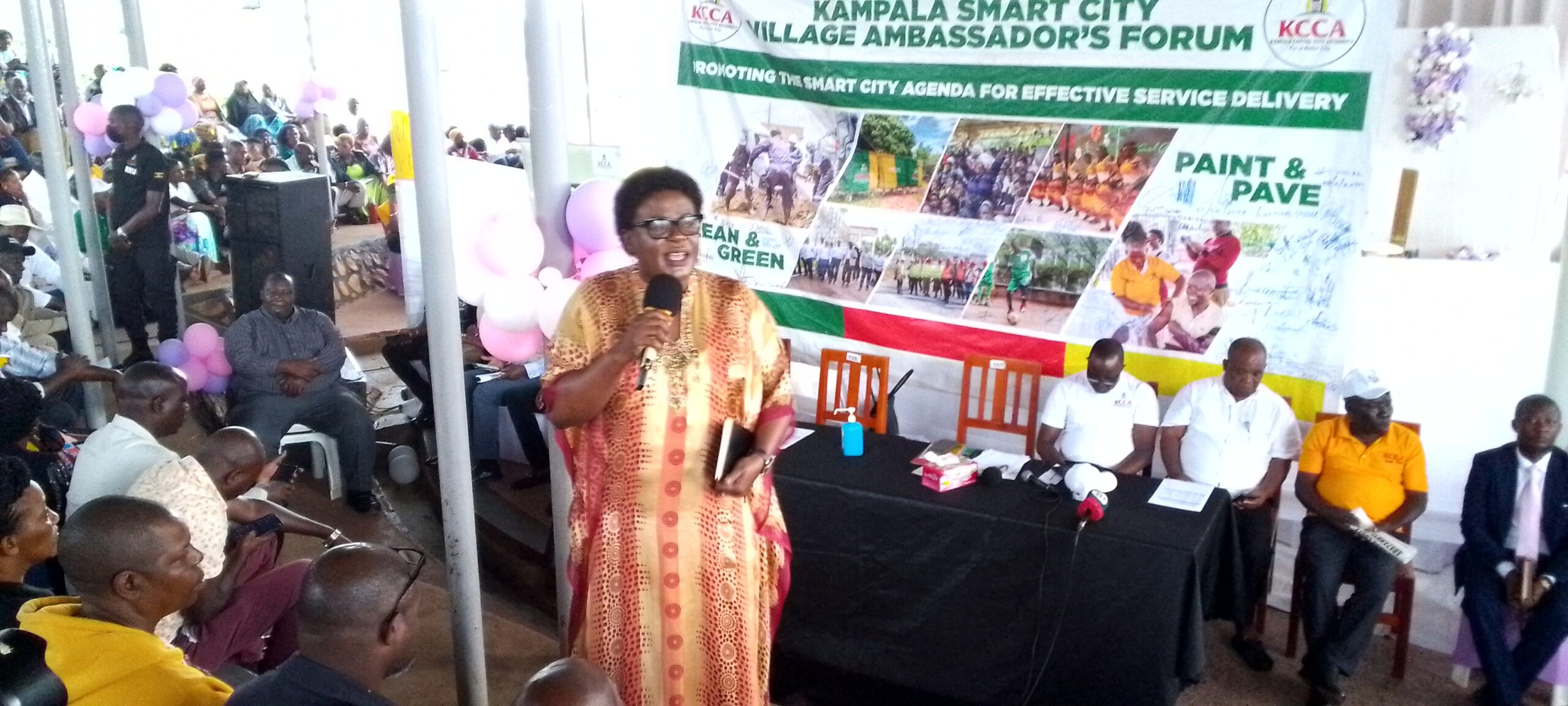In a landmark event advocating for justice and inclusivity, the Alliance of Women Advocating for Change (AWAC Uganda) and UNAIDS have called for equitable treatment of sex workers and other marginalized communities in the fight against HIV/AIDS stigma and discrimination.
The Sixth National Annual Sex Workers’ Dialogue (NASWAD-6), held on Tuesday in Hoima, brought together key stakeholders, including district leaders, health workers, and local officials. The gathering aimed to address the critical need for inclusivity in healthcare and job opportunities for key populations such as female sex workers, men who have sex with men, people who inject drugs, and transgender individuals.
Ms. Macklean Kyomya, Executive Director of AWAC Uganda, delivered a compelling address on the importance of integrating these communities into urban strategies for combating HIV/AIDS stigma and discrimination. She emphasized the need for collaborative efforts to overcome the challenges of stigma and social injustice faced by these groups.
“Today was a remarkable day,” Ms. Kyomya stated. “We had all stakeholders gathered in one room, including the Deputy RCC and the Mayor. Their presence and active participation demonstrated a strong commitment to supporting key populations. The engagement of these leaders is a significant step forward, setting a positive precedent for addressing the needs and challenges faced by these communities.”
Kyomya also expressed gratitude for the financial and technical support received from UNAIDS which was instrumental in making NASWAD-6 possible. “Without this support, NASWAD-6 wouldn’t have been possible.” Noting that Hoima is a virgin place yearning for community engagement and serious advocacy as far as empowering key population communities in the fight against stigma and societal discrimination is concerned.
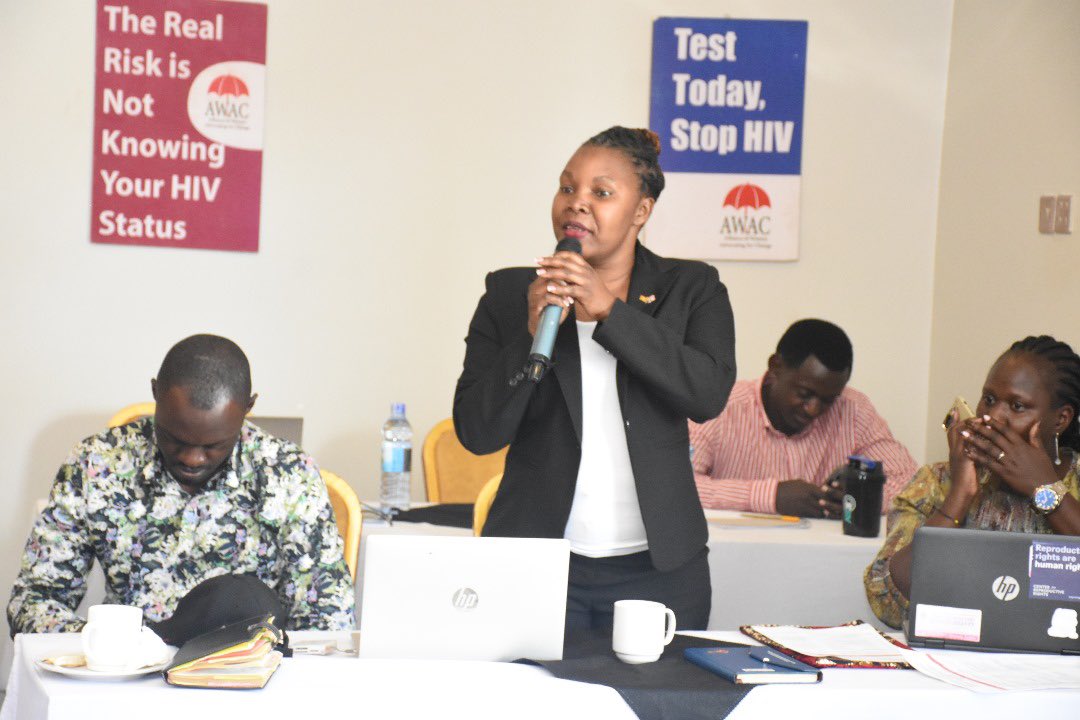
“We have faced challenges with the rising HIV prevalence in Hoima, and the advocacy for key populations has not been updated to include empowerment through initiatives like community-based structures and innovations such as Community Actors for HIV Plus (CAHIV Plus). This integrated model provides comprehensive services, including access to contraceptives, sexual and reproductive health, cancer screening, mental health support, and economic empowerment. Today, we recognized the importance of engaging in dialogue with local leaders to discuss our project, ‘Co-create with Her.’ Through this model, we collaborate with the community to identify solutions. I believe this was a success, as local leaders have pledged their support,” she noted.
She noted that hosting NASWAD-6 in Hoima City was a significant milestone for the key populations living in the area. She emphasized that AWAC Uganda aims to establish CAHIVs as well-organized and safe spaces for key populations, including LGBTQ individuals and female sex workers, where they can access all forms of support without fear of stigma.
“When it comes to empowering female sex workers, we are champions, we started this strategy of establishing a strong and resilient movement through mentorship and we have established initiatives like Community Health and Livelihood Enhancement Groups (CHLEG). These are basically to empower female sex workers to save and plan for the future. And these groups are managed by sex workers themselves,” she added.
She added that moving forward, AWAC Uganda aims to see all key populations in Hoima City and the district at large empowered and for community leaders to recognize and accept their identities, allowing them to enjoy their rights peacefully while contributing their labor to support their families.
The NASWAD-6 event was held following the Candlelight Memorial event in Hoima, which had previously highlighted the issues affecting sex workers and other key populations. The dialogue underscored that despite various initiatives aimed at addressing HIV, key populations have often been overlooked, resulting in significant stigma and exclusion.
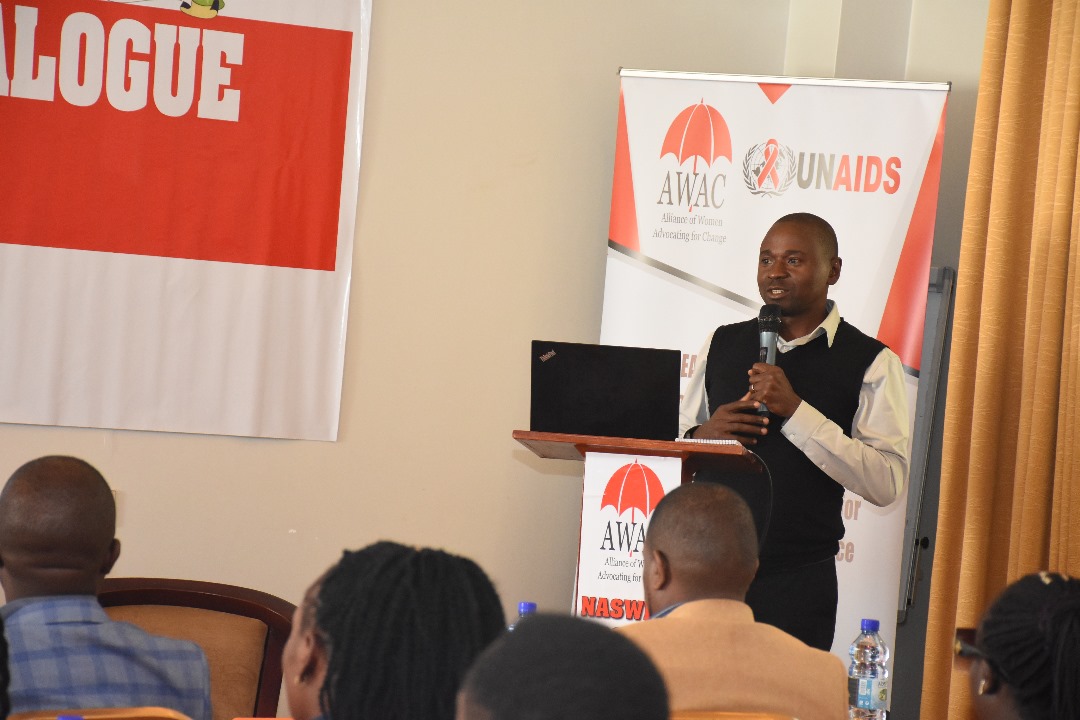
Sarah Nakku from UNAIDS echoed the sentiment, highlighting the persistent gaps in initiatives catering to sex workers, LBQ+ individuals, transgender people, and drug users. She commended AWAC Uganda for its efforts in bridging these gaps and bringing forward programs specifically designed to empower sex workers.
“On this project, we are basically focusing on the key population communities and mainly the sex workers to reduce HIV/AIDS-related infections but also work on issues around sexual reproductive health access to services and mental health and integration of economic empowerment within this particular district,” she said.
She added that in Hoima stigma and discrimination are still strong mainly among the sex workers and other key population communities. “So we believe that the leadership of AWAC Uganda will be in a position to break the chains of self-stigma while we work on the community-related stigma.
She however warned that unless all the stakeholders fighting to see AIDS become history in Uganda resist stigmatizing and discrimination against the key population communities, there is no way Uganda can end HIV in 2030.
Why Hoima?
According to the project report dubbed ‘Co-Create with Her’ done by AWAC Uganda in 2024, Hoima District has experienced significant socio-economic changes due to the oil industry and the passing of the Ant Homosexuality Act 2023, leading to increased HIV infections, particularly among vulnerable populations such as female sex workers (FSWs) and other key populations, including LBQ (lesbian, bisexual, and queer) sex workers, transgender individuals, and male sex workers.
The influx of people drawn to the area due to oil and gas exploration has created new income opportunities but has also fueled human rights violations and heightened vulnerability to health risks, notably HIV/AIDS.
In their report they noted that recent statistics from 2023 indicate that Hoima City has an HIV prevalence rate of 6.9 percent, while the district averages 4.2 percent, both higher than the national average of 5.2 percent. This increase is directly linked to rapid population growth and demographic changes resulting from industrial activities, a sizable population of truck drivers, and issues related to the improper use of HIV self-testing kits, highlighting a gap in accurate information on HIV prevention.
Dr. Peter Mudiope from the Ministry of Health, while presenting his Baseline Mapping of Key Population hotspots (including female sex workers, men who have sex with men, people who inject drugs, and transgender individuals) and health service providers in Hoima City and District, revealed the key population communities are less reached with HIV services due to stigma, and discrimination that lead them to shy away from public health facilities.
Furthermore, the enactment of the Anti-Homosexuality Act (AHA) of 2023 has exacerbated stigma, further deterring key population communities from accessing essential health services, and complicating efforts to control HIV in the region.
His study also showed that the stigma surrounding key populations in Hoima has significantly hindered their access to healthcare. Men who have sex with men (MSMs) and transgender individuals, in particular, face judgment and discrimination, which often discourages them from seeking care.
“Many in key populations avoid healthcare facilities due to fear of being identified and prosecuted under the AHA, leading to a notable decline in the uptake of services such as HIV testing, PrEP, and ART. Healthcare providers frequently hesitate to offer services to key populations due to concerns about legal consequences or being labeled as endorsing illegal behaviors. This reluctance has created a gap in service provision, especially in areas of HIV prevention and care,” he said.
He recommended that interventions focus on reducing stigma in identified hotspots by training healthcare providers to offer non-judgmental care and implementing awareness programs to challenge harmful stereotypes about key populations.
To improve service access, he emphasized the need to increase the number of safe spaces where key populations can receive healthcare services without fear of stigma or discrimination. This could involve establishing more drop-in centers (DiCs) and ensuring these facilities are adequately resourced.
Meanwhile, the discussions at NASWAD-6 emphasized the need for systemic changes to ensure fair treatment and inclusivity for all marginalized communities. The event marked a significant step toward addressing longstanding disparities and fostering a more equitable environment for everyone.
By advocating for these critical changes, AWAC Uganda is paving the way for a more inclusive and just society, where every individual has access to the same level of respect and opportunity.
Do you have a story in your community or an opinion to share with us: Email us at Submit an Article



